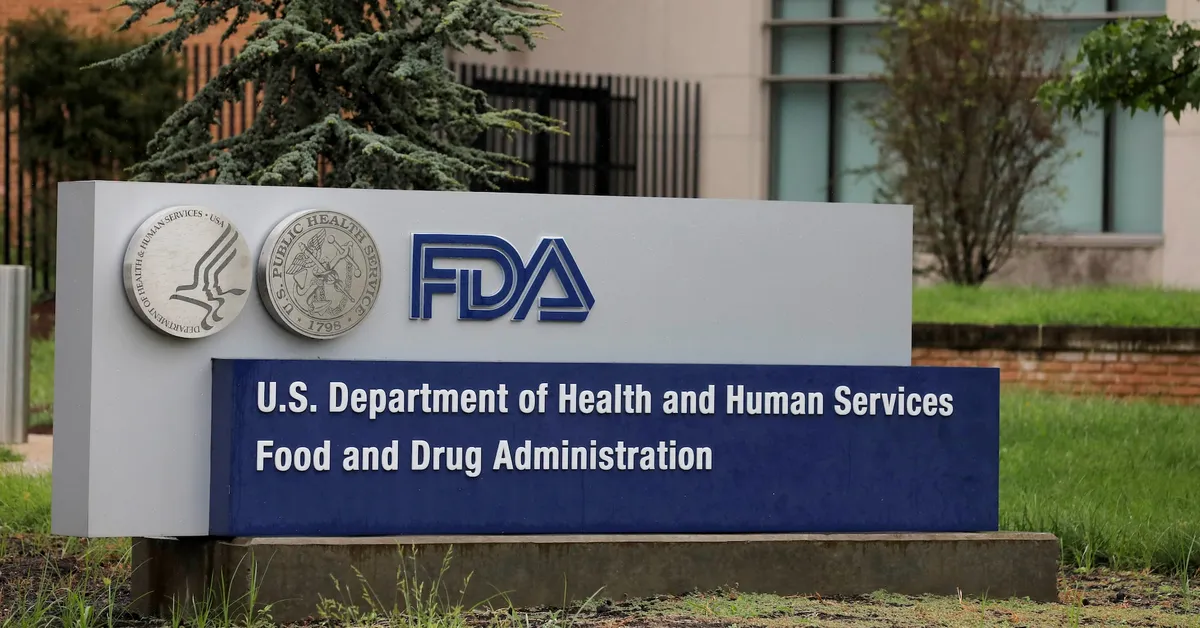
The Food and Drug Administration (FDA) has announced significant regulatory actions concerning Sarepta Therapeutics' gene therapy, Elevidys, following a recent meeting with the company. This decision aligns with an earlier report by Reuters and comes amid growing concerns about patient safety.
In response to the FDA's request, Sarepta, based in Cambridge, Massachusetts, confirmed that it will continue to ship Elevidys to ambulatory patients. However, the company will maintain its pause on shipments for non-ambulatory patients, a measure implemented on June 15. This decision was prompted by a report to the FDA regarding a case of acute liver failure in a patient who was unable to walk.
Sarepta emphasized that its decision is supported by a thorough scientific analysis of the data, which indicates no new or altered safety signals in the ambulatory patient population. The FDA has noted that a recent case involving a 51-year-old man with limb girdle muscular dystrophy was not directly linked to Elevidys, although the therapies share similar gene technology. Despite this, the FDA has decided to halt clinical trials for limb girdle muscular dystrophy due to ongoing safety concerns.
Elevidys, which received traditional approval in 2024 for patients aged 4 and older with the Duchenne muscular dystrophy gene mutation, has faced scrutiny following a late-stage trial that did not meet its primary goal. Additionally, the FDA revoked the platform technology designation for Sarepta's gene therapy, a status that typically facilitates a quicker regulatory review process for promising technologies.
Following these developments, Sarepta's stock took a significant hit, closing down 36% at $14.08, and at one point plummeting over 40% to a nine-year low. This decline was compounded by the recent disclosure of a third patient death, increasing scrutiny from the FDA and concerns among investors.
The FDA continues to investigate the risks associated with acute liver failure linked to gene therapies utilizing Sarepta's AAVrh74 platform technology. Wall Street analysts have indicated that these recent fatalities may lead to hesitation among patients considering Elevidys. Debra Miller, founder of the nonprofit CureDuchenne, expressed that families affected by Duchenne muscular dystrophy are facing a challenging mix of disappointment, concern, and uncertainty regarding treatment options.
In light of these challenges, Sarepta announced on Wednesday that it is working with the FDA to include a warning label about potential liver toxicity risks on Elevidys' packaging. During an investor call, CEO Doug Ingram addressed questions about the timing of the disclosure regarding the latest patient death, stating that it was not deemed material to the company's previous announcements, which included layoffs and program cuts.
Despite Sarepta's reassurances, analysts, including those from BMO Capital Markets, have raised concerns regarding the company's handling of information related to patient deaths, suggesting it could impact the management's credibility. When pressed, Sarepta confirmed it was unaware of any other deaths beyond the three that had been disclosed.
As the situation evolves, the FDA's scrutiny and Sarepta's response will be closely monitored by investors, patients, and healthcare professionals alike.